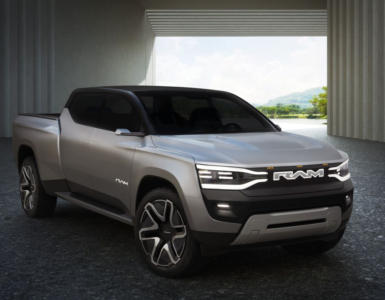First Hydrogen – Vehicle Trials with Multinational Company.
First Hydrogen Corp. (TSXV: FHYD) (OTC Pink: FHYDF) (FSE: FIT) (“FIRST HYDROGEN” or the “Company“) has completed three successful vehicle trials of the Company’s hydrogen-fuel-cell-powered vehicle (FCEV) and now has started trials with a large multinational logistics company, whose partners use commercial vans for parcel deliveries. The trial commenced in London, UK with driver training and is expected to continue for a month.
Parcel delivery companies face a diverse set of challenges, and are often exploring multiple zero emission technologies, including battery and hydrogen technology, to meet commercial and environmental targets. These fleets can make up the middle or final stages of the supply chain, which traditionally handle journeys to transport items from local hubs directly to consumers or end users. Recently completed trials with Wales & West Utilities (WWU), show the first-of-its-kind vehicle has been operating for between 6 and 7 hours per day. The new trials will test the FCEV over 8 hours per day with multiple deliveries per hour.
First Hydrogen has also demonstrated how its fuel cell’s powertrain delivers power when needed, achieving outputs of 60kW in transient accelerations, and in previous trials the vehicle has achieved a peak range of 630km (400 miles). This indicates the vehicle can manage more demanding duties, such as carrying heavier payloads, driving over hilly terrain or powering auxiliary equipment (onboard power).
🔥 What about we co-host a webinar? Let's educate, captivate, and convert the hydrogen economy!
Hydrogen Central is the global go-to online magazine for the hydrogen economy, we can help you host impactful webinars that become a global reference on your topic and are an evergreen source of leads. Click here to request more details
More detail on the FCEV’s deployment with WWU can be seen here: http://tinyurl.com/mvu8m644.
A growing market
Global Market Insights reports parcel delivery vehicle market size will surpass US$210 billion by 2032. Ecommerce continues to fuel growth of the delivery market. The parcel delivery market was valued at US$486.47 billion in 2023, as reported by Stellar Market Research, going to US$648.84 billion by 2030. As the size of the parcel delivery market grows, the number of parcels and, as speed of delivery is crucial to service. This increases the number of delivery vehicles on the roads and therefore the amount of vehicle emissions unless fleets are able to transition to zero-emission technologies like battery or hydrogen fuel cell.
WHY HYDROGEN
Sustainability and Zero Emissions: By using hydrogen fuel cells, businesses can significantly reduce their carbon footprint, contributing to decarbonization goals. Hydrogen fuel cells emit only water and heat, offering a less carbon intensive alternative to fossil fuels. When utilized with green hydrogen, the FCEVs will be completely greenhouse gas emission free. FCEVs produce no harmful tailpipe emissions, with the only byproduct being water. This is a stark contrast to gasoline and diesel vehicles, which emit tailpipe pollutants such as nitrogen oxides, hydrocarbons, and particulate matter.
Energy Efficiency: Hydrogen fuel cells are more energy-efficient compared to traditional combustion engines. This efficiency can lead to reduced energy costs and a more sustainable energy use profile for parcel deliveries and warehouse operations. Today, FCEVs have higher initial costs than diesel vehicles, but these costs are expected to decrease significantly by 2030 due to technological advancements. Hydrogen has a higher energy conversion efficiency of 50-60% compared to diesel engines, which will lead to long-term savings.
Extended Range and Refueling Time: Hydrogen fuel cell vehicles can travel longer distances before needing to refuel compared to battery electric vehicles, and refueling can be completed in a matter of minutes. This extended range and quick refueling capability are particularly beneficial for delivery vans and trucks, ensuring minimal downtime and maximizing operational efficiency.
Scalability: Hydrogen fuel cells can be used in various applications, from forklift and light commercial vehicles to heavy-duty delivery trucks. This versatility allows businesses to deploy hydrogen technology across different aspects of its operations, providing a scalable solution to meet its sustainability goals.
Versatility: FCEVs can handle larger payloads, offer consistent power output rates and can tolerate low temperatures, making their performance superior to battery power for intensively used commercial vehicles.
Reducing Dependence on Fossil Fuels: By adopting hydrogen fuel cells, we move towards reducing the dependence on fossil fuels, aligning with global efforts to transition to cleaner energy sources. This shift not only supports environmental goals but also enhances energy security.
READ the latest news shaping the hydrogen market at Hydrogen Central
First Hydrogen – Vehicle Trials with Multinational Company. source








